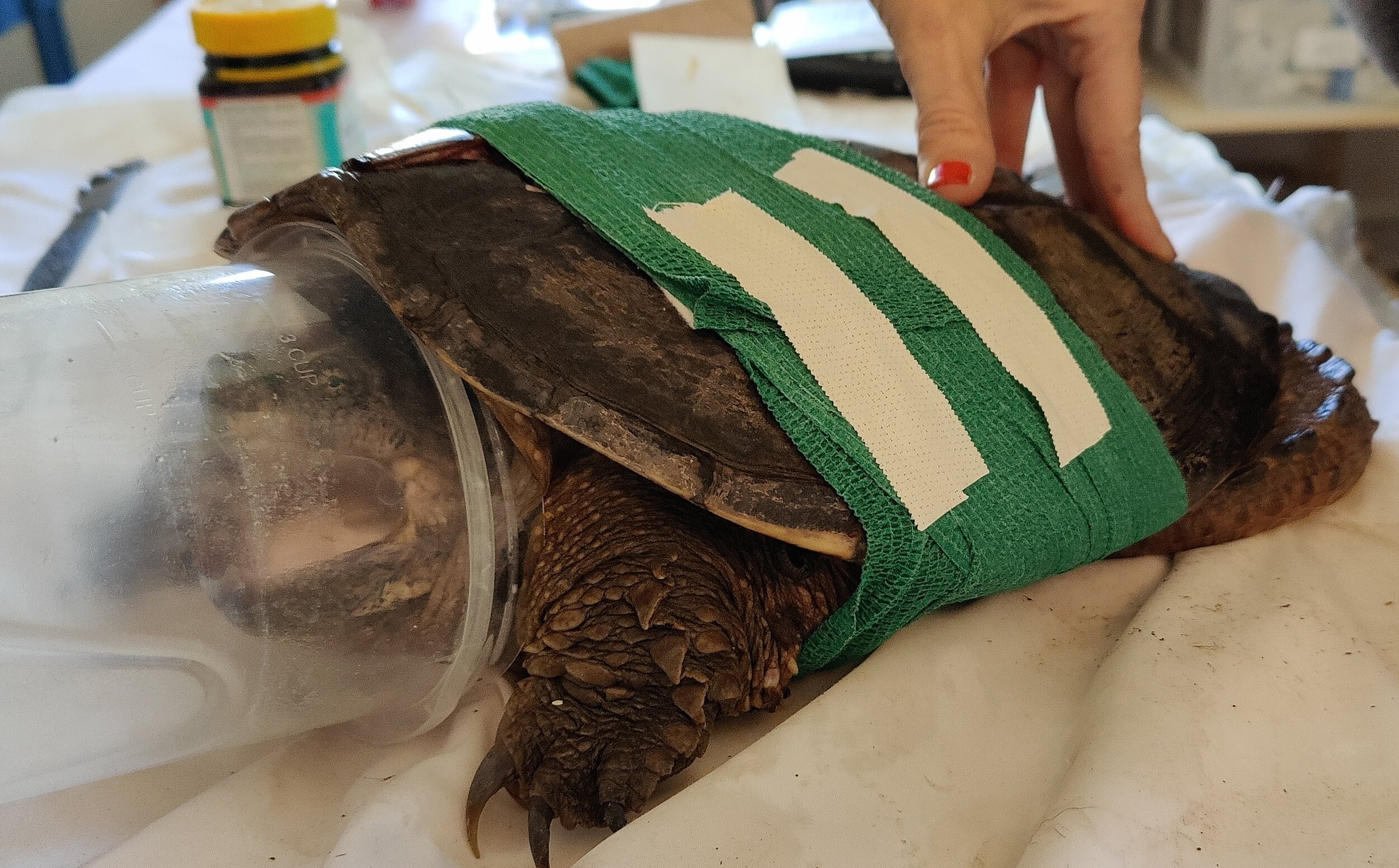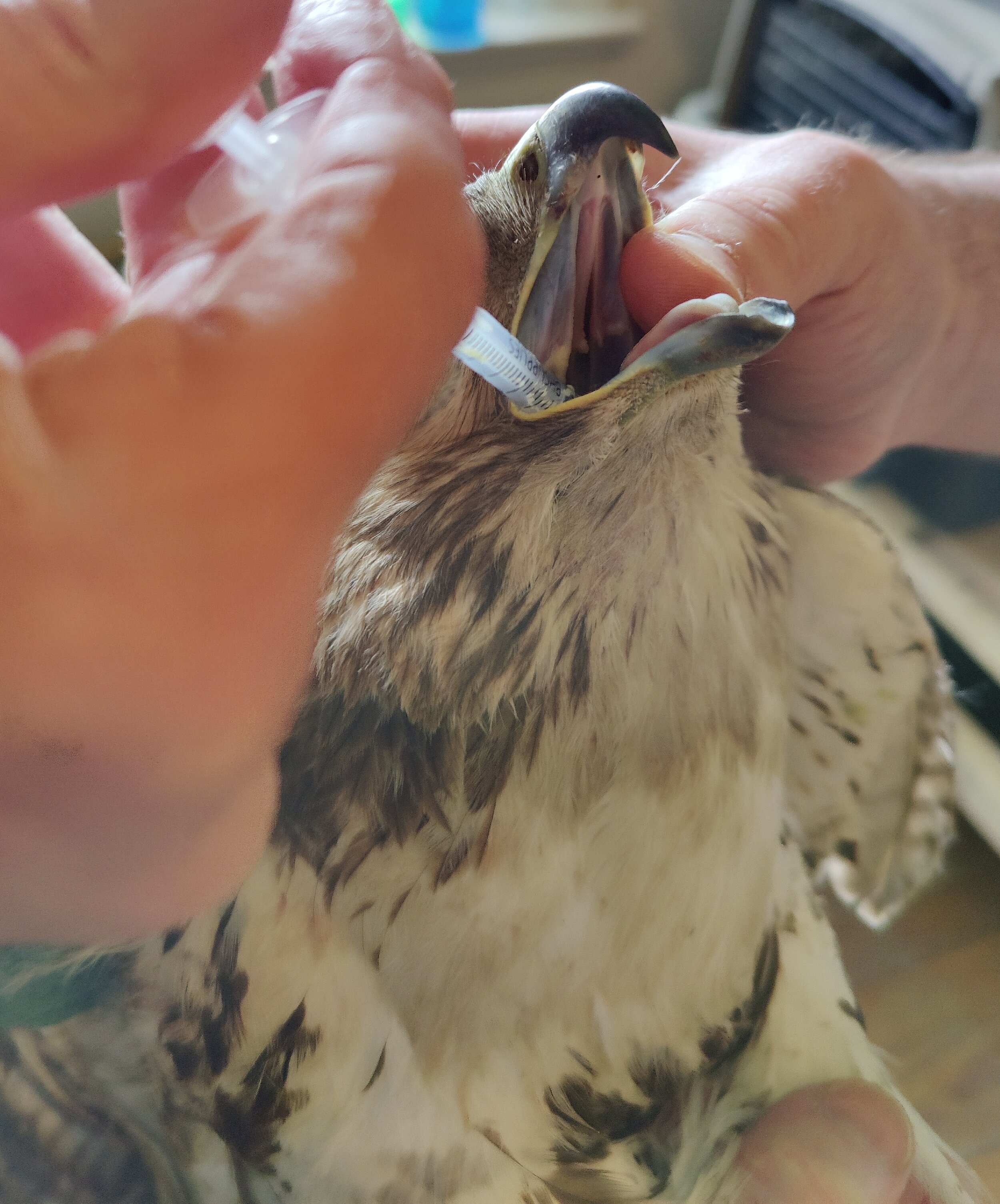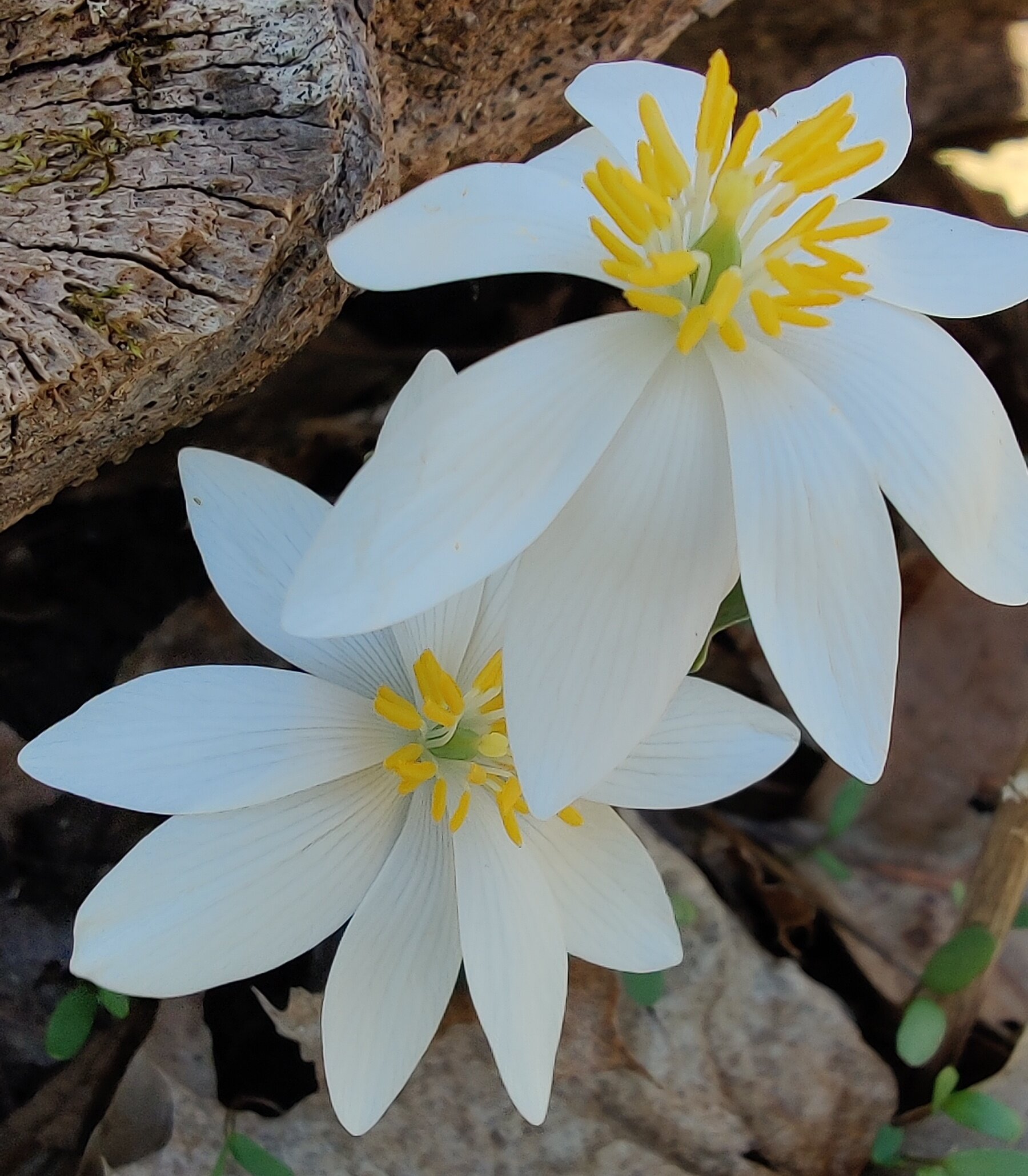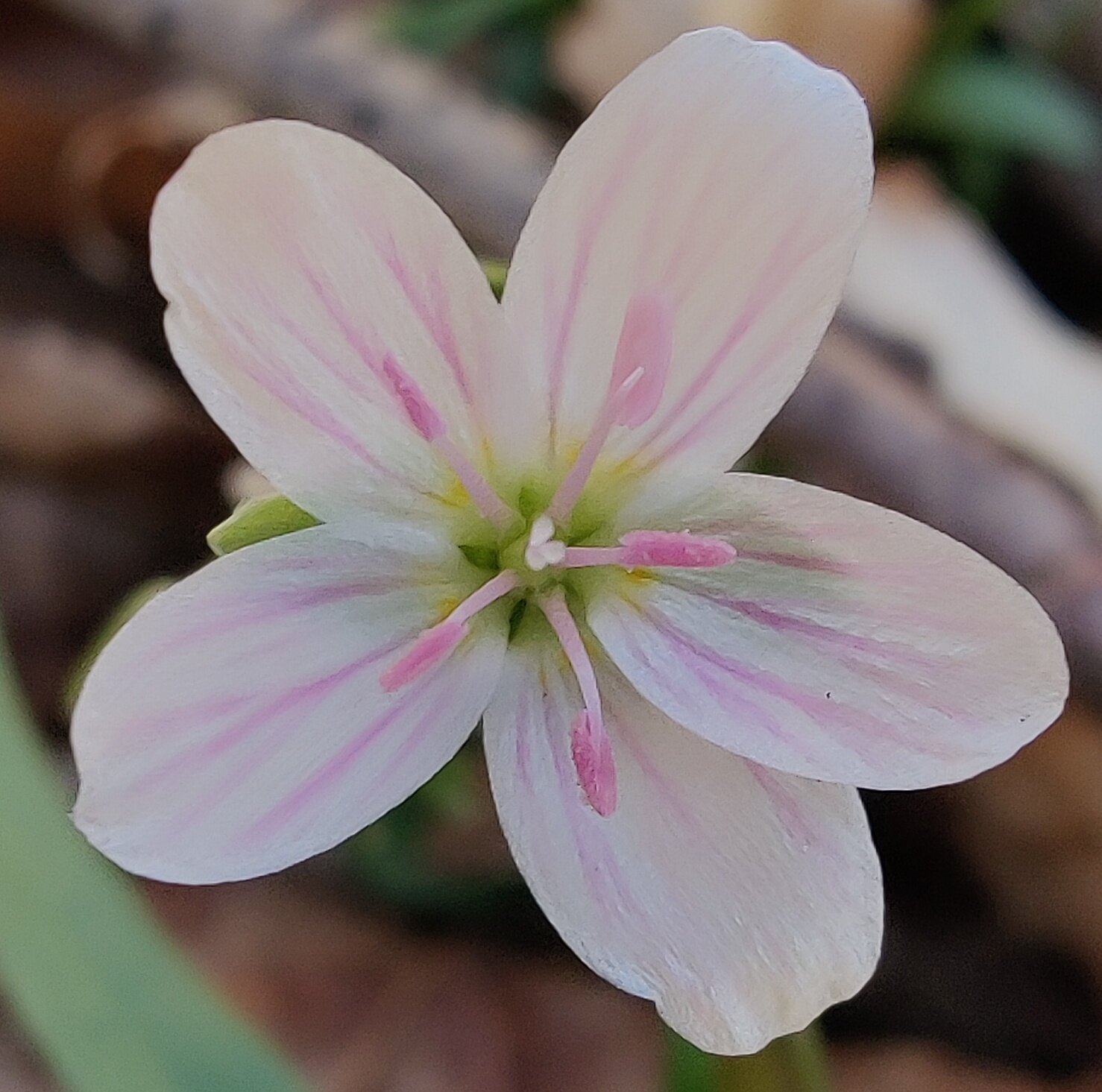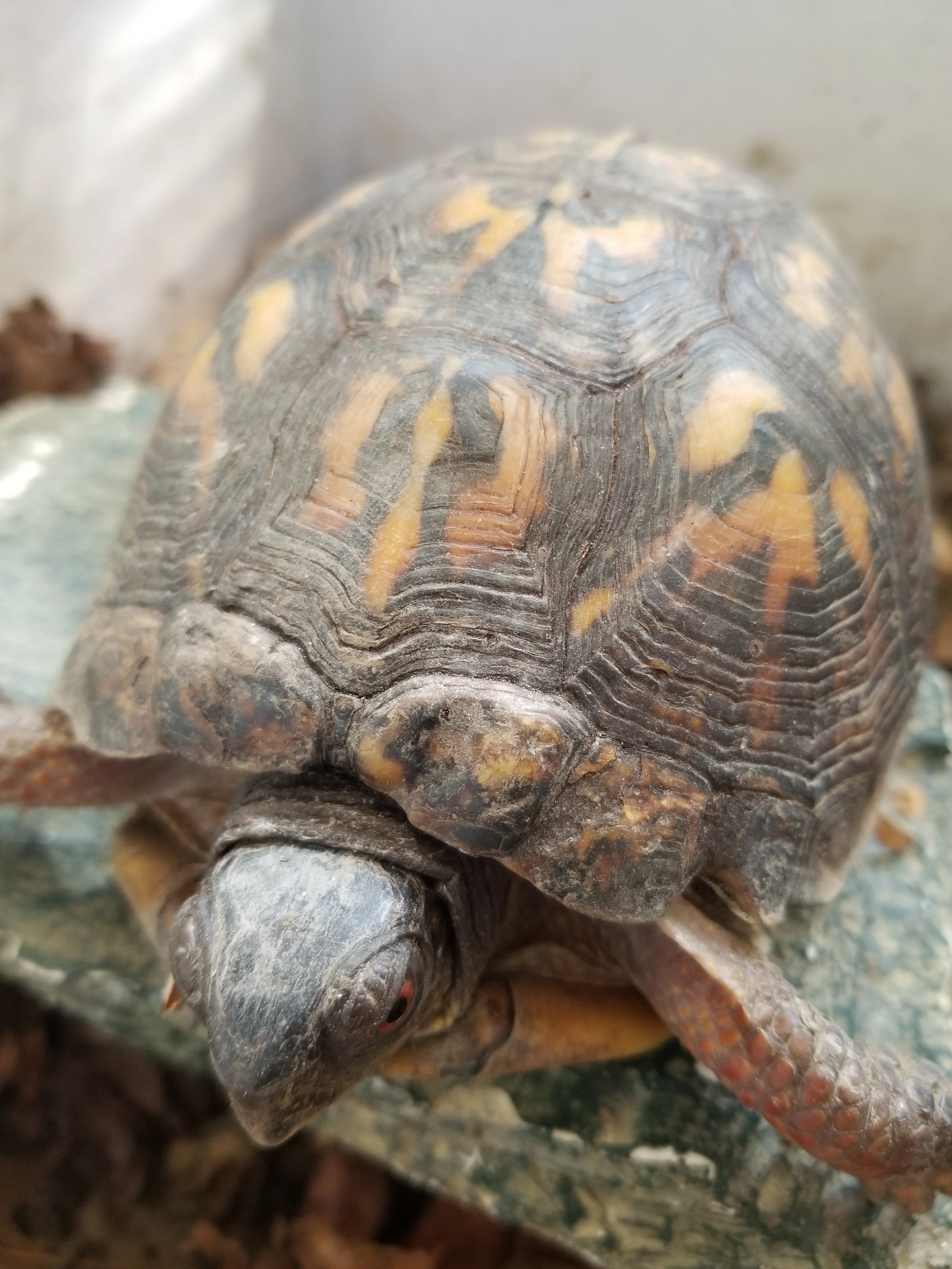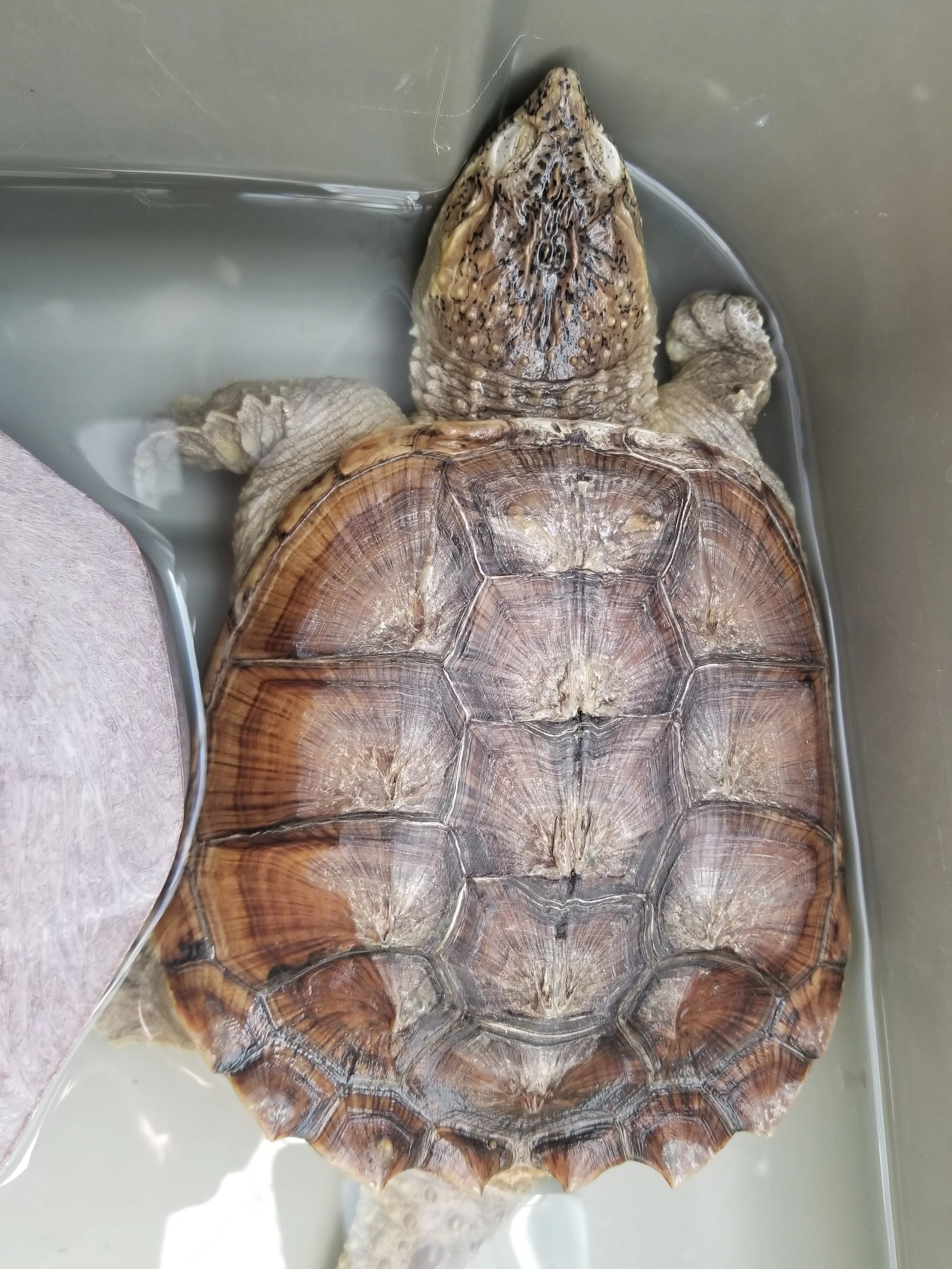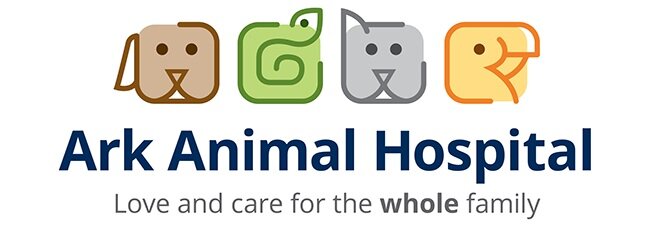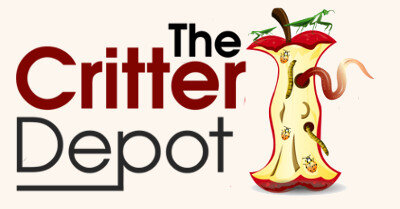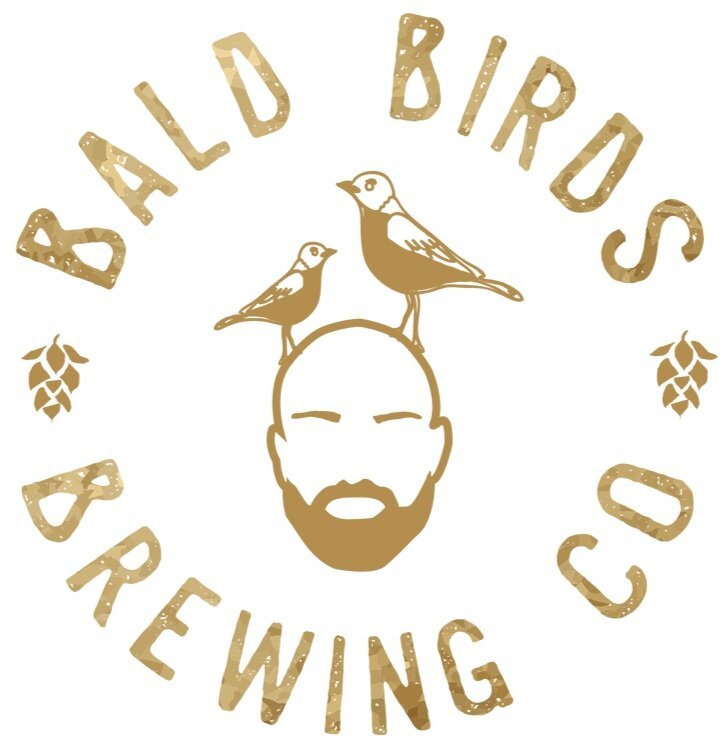If you see a wild animal in distress, call us before you take any action. This has always been our policy - but is especially important in this context (for the health of all wildlife and humans involved).
Our new logo
Retrospective - Patient #0001
Busy Season is Approaching
A small sample of clinic events this week: A Red-tailed Hawk receives treatment after a head trauma, a Snapping Turtle has its wound cleaned and dressed, and Pennsylvania wildflowers emerge on the property.
Thank You
We want to say thank you to the Zeta Phi Beta sorority, Philadelphia graduate chapter, for the amazingly generous supply drive they did for us. On a cold, rainy February day, a dozen sisters delivered us a truly impressive amount of supplies - medical supplies, cleaning supplies, dog and cat food, even a new refrigerator. Thank you to President Dana Moore and Wildlife Project Coordinator Colleen Wright - Green, and all the sisters for this great work.
See us on Fox29
Cooper's Hawk
This is the hurt Cooper's hawk that was brought to us from Roxborough yesterday, just so that everyone there who was concerned knows that the animal wound up in good hands and is in our care now. It's unable to fly, but it's alert and stable now and we will give it full diagnostics and get to the root of the problem.
State of the Clinic
Throughout this very challenging year we've managed to stay open every single day, never closing for overcapacity, taking in thousands of hurt and displaced animals, thousands of phone calls, serving 4 counties including all of Philadelphia, with a large volunteer crew and a very shrewd hardworking staff. No complaints or negativity here, we're alive and full of energy and happy to serve for many years to come.
Under Construction
Below, a raptor enclosure takes form. At Philadelphia Metro Wildlife Center, we are racing to build capacity to meet the demands of injured and orphaned wildlife. Patient 1693 (of 2020) was just admitted - and counting. The work never stops.
Kestrel
The kestrel is a small falcon that eats insects and small prey. This young kestrel is resting between bites while being hand fed.
Life on the Premises
We don’t just dig our patients at Philly Metro, we’re also interested in the life in the wild that share our space. This colorful character, possibly a Cherry Millipede, was seen strolling through our parking lot Saturday.
Amphibians and Reptiles at the PWMC
By Rick Schubert, Director
Reptiles in Rehab
Lots of reptiles and amphibians here right now. They need help too, and equal care to birds and mammals. Garter snake with a wound on his side, red eared sliders with shell rot, snapping turtle with a deformed shell from being kept as a pet, eastern box turtle missing a leg, American toad found in the snow, a little too early to be out of hibernation. "Toadbert" is really cool and we hope to get him back out real soon.
We also have a three-toed box turtle that was also found out in the snow. They're not native box turtles to PA, and are often kept as pets to circumvent the (very wise) laws against keeping native box turtles (because their numbers in the wild are plummeting). But someone probably got tired of him and thought dumping him in the woods was an option. That's not okay---because they're not from around here and can't hibernate properly and will die. Keeping any pet is a lifetime commitment, but we strongly recommend against keeping any kind of wild animal, even legal ones. They aren't interactive and don't want to be with you. They deserve to be free! Adopt a dog or cat instead.
An important note about our center: we and many other wildlife centers are not normally able to take non-native turtles except in extreme cases where immediate humane aid might be called for, and no other help is available. As we are a wildlife rehabilitation center, we do not have the resources to deal with pets. There are pet reptile rescues that can help in those situations. In the case of the current exceptions that we wound up with, they will not be released into the wild because that would not be ecologically prudent. Rather, we will find appropriate homes for them. This has to be done very slowly and carefully, so that they do not wind up discarded back into the wild again. This is why we strongly discourage buying these animals as pets. As far as native reptiles, NEVER take them from the wild to keep as pets!

